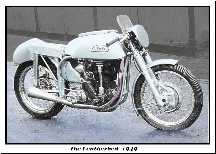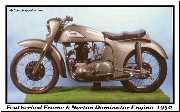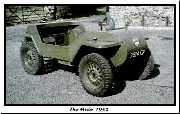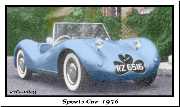To Make A Better Mousetrap
A Biography of the Remarkable
Rex McCandless
by R.L. Jennings
"If a man write a better book, preach a better
sermon, or make a better mousetrap than his
neighbour,though he build his house in the woods,
the
world will make a beaten path to his door."
(attributed to Ralph Waldo Emerson
1803-1882
and a phrase often used by Rex)






![]()
![]()
‘Genius, charming, eccentric, inventive, mercurial, argumentative, single-minded, bombastic’, are words which, at one time or another, have been used to describe Rex McCandless. He was a remarkable character and few who knew him could fail to be impressed by his personality and dynamic energy.After his father had emigrated to Canada, the teenage Rex McCandless became the family breadwinner by taking on a labouring job in a Belfast grain mill. From an early age he was fascinated by motorbikes and all things mechanical.An inborn competitive drive and intense ambition “to make a better mousetrap” took him on a lifelong inventive pilgrimage, covering a range of motorcycles, four wheel drive racing cars and cross-country vehicles, sports cars, plastics and brick-making machines, to rotary wing flying machines powered by motorcycle or car engines.In partnership with his brother Cromie and Norton works-rider Artie Bell, Rex developed and patented the Featherbed’ frame used very successfully by Nortons for both road-racing and touring-bikes in the early 1950s.His exceptional abilities and inventive ways caught the attention of the Ulster-born tractor-magnate Harry Ferguson who, at one point, offered him the top job in Harry Ferguson Research Ltd. The ensuing tempestuous relationship between two equally determined and stubborn Ulstermen is now revealed in their prolonged exchange of letters.Fiercely independent and largely self-taught, Rex McCandless learnt from experiment and experience and despised “second-hand” knowledge.He was a fun-loving extrovert who lived life to the full and no one who knew him could ever say he was dull.Many other interesting personalities appear through the pages which present a snapshot of life with bustling innovative energy at the middle of the twentieth century. |
